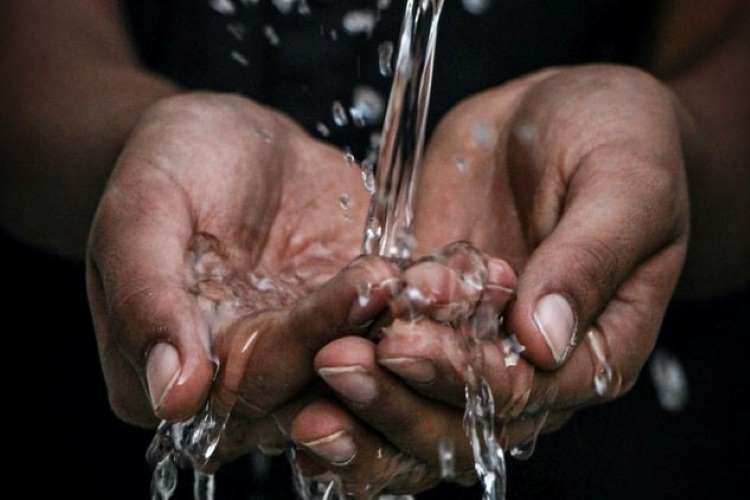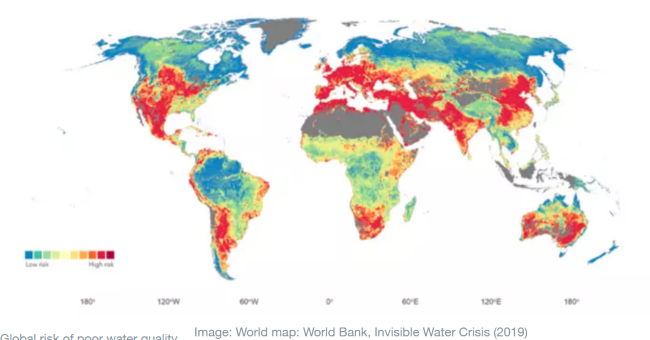
Another World Water Day passed (March 22), bringing focus on the importance of the scarce resource. Water and sanitation for all is a key target in the United Nations’ sustainable growth agenda (SDG 6) for 2030. It is estimated that a third of the world population have no access to safe water. By 2050, around 5.7 billion people could face water scarcity for at least one month a year.
Despite all the concern about the scarcity of water, the importance of this resource is not properly understood or communicated, even in countries that face water shortage. The focus of the World Water Day 2021 was on the value of water and its impact on the everyday life of human beings. Concerted action at personal, political and global levels is needed to manage the resource and to achieve SDG 6.

READ I Silver lining: Covid-19 injects urgency into climate action
Valuation of water
This year’s World Water Day highlighted the social, economic and environmental value of water. Water played a crucial determining role in human evolution — in nurturing civilizations, provoking bloody conflicts and building societies that respect equality of all humans.
Water is a key input that determines economic development. Scarcity of water and sanitation costs around $260 billion to the global GDP every year. Water has a significant influence on the mother of all crises faced currently by humanity — the climate change. Improvement in wastewater treatment can bring down greenhouse gas emissions that cause global warming and the climate crisis. Global markets acknowledge the importance of water and treat it along with commodities such as gold and oil.
Water is still treated as an infinite resource by most countries, which is a worrying trend. It has to compete with a range of issues for global attention. The world must manage this resource better to ensure the survival of the human race.
READ I Back to basics: Kerala’s Covid-19 curve springs another surprise
Managing scarce water resources
Anna Huber, water and environmental resilience specialist at World Economic Forum, lists how individuals, governments and companies can help manage the resource for a better future of human civilization.
Individuals can value water by stopping polluting and cutting daily intake of water. People dispose of medicines in toilets, and throw discarded plastic in water bodies, polluting rivers and oceans. It has been found that water pollution increases with economic growth. Individuals can influence political decision making by intelligent voting and influencing water allocations by government at different levels.
Anna Huber’s blog strives to enlighten people on some basic facts about wastage of water — running taps consume 4-8L water and showers 9-19L water every minute. Production of every kg of red meat consumes 5,000-20,000L. Mindful consumption can reduce water usage by a considerable margin. People can also help water preservation by influencing political decision as part of political and social movements.
Averting water crisis
Very few nations such as South Africa have included access to water as a human right. Some others such as the US and the European Union have signed a water charter. The governments have a major role to play in imparting knowledge and awareness among citizens to reduce their water footprint. They reward water conservation and engage businesses to become water-positive. By setting limits for water consumption and pollution, they reduce national water footprint.
A large number of corporates have reduced water usage, using innovative methods. Some companies have set their internal water pricing benchmarks, while others have vowed to give back more water than they use. Climate-resilient water usage could limit global warming to 1.5°C above pre-industrial levels, cut climate-induced water stress by half, and reduce extreme weather events that caused some major disasters in the last 10 years.
The world’s water resources are highly stretched by a growing population, and subsequent increase in demand from agriculture and industry. A properly managed water cycle for drinking purposes, sanitation and hygiene can ensure health and indignity of all humans.
(Sajna Nair is a former banker. She writes on environment, art and culture.)
Anil Nair is Founder and Editor, Policy Circle.

